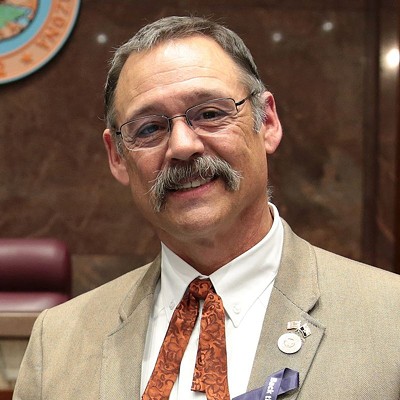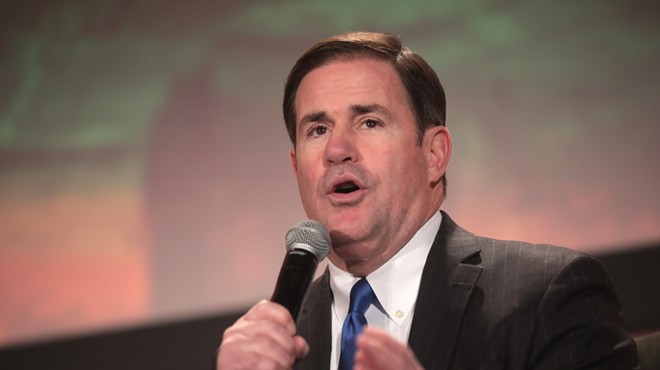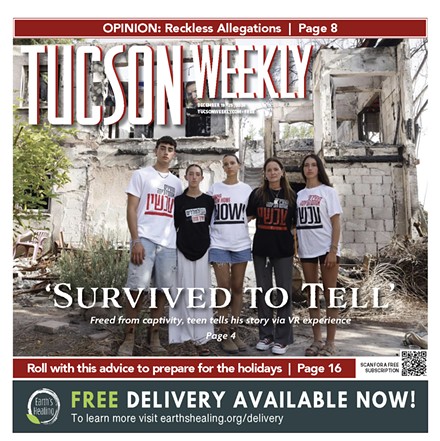Monday, March 23, 2020
With Schools Closed, Some Childcare Options Exist for Parents

Danyelle Khmara/TLM file photo
Schools are closed, so working parents need a spot to send their kids.
Last Monday, The City of Tucson also shut down their youth programs, KIDCO and SchoolzOut Camp, due to issues such as a lack of sanitation products at their sites. The programs will be shut down through at least April 10. The city plans to reevaluate opening the youth programs once schools reopen, according to Andy Squire, public information officer for the City of Tucson.
“From everything we are seeing, I would say it would be likely (youth program closures) would continue beyond that,” Squire said. “Child care is available in our community for folks both at the YMCA’s and the Boy’s and Girl’s Clubs.”
But slots could be hard to come by for many Tucsonans. Both The YMCA of Southern Arizona and the Boys and Girls Club of Tucson are prioritizing childcare for the children of first responders, health care workers and employees at grocery stores. The BGCT is “strictly providing emergency childcare to 60 children, ages 5-12, of essential and critical service community workers” at their Grant Road location, according to a press release.
BGCT is also working with TUSD Meal Services to supply breakfast and lunch to enrolled children. The YMCA is partnering with local private school lunch provider, Nutrition One, to offer breakfast, lunch and snack options for their enrollees.
The YMCA of Southern Arizona is also giving essential workers special preference for child care. Child care spots at the YMCA aren’t just for medical workers, but grocery store workers too, said Candis Martin for YMCA Southern Arizona.
“The program is for anybody who is providing a critical role right now,” Martin said. “Whether that begins with doctors and nurses, it could also be the courtesy store clerk at Fry’s down the street.”
Martin said she was unsure about how many kids are enrolled in the essential workers program, but she is expecting anywhere from 250 to 2,000 children by the end of this week. Martin said the YMCA shouldn’t have a problem meeting enrollment numbers due to having seven locations available in town, staffed by the organization’s numerous employees in Tucson. Martin also said the organization updated sanitation and social distancing practices to meet the current standards before children arrived.
“We not only have our four full-service branches, but we also have a day camp and tons of off-site facilities. We also have the ability to bring in other staff from additional departments to train if needed,” Martin said. “We also took an inventory of all the cleaning supplies and necessary equipment and we pretty much centralized it. We instilled new procedures to make sure we are following not only CDC recommendations, but we’re working closely with the Pima County Health Department.”
The YMCA is considering opening enrollment of child care to the public should space become available and if school closures last till the end of the semester year, Martin said. But for now, the YMCA is reserving space for children of essential workers. She said she would have a better idea of the program’s demand by the end of the month.
“We are first-come, first-serve and we do have a lot of space available,” Martin said. “So, if that demand wasn’t necessary for those providing critical roles in our community right now, we would be opening it up to those other individuals.”
In the meantime, both the YMCA and the BGCT are in the process of implementing online and phone-based youth education programs and tools for parents. In addition to video programming, the BGCT is offering a “staff-led Power Hour learning sessions, book clubs, art activities and more,” according to their release.
The YMCA is also putting together a “virtual YMCA,” starting with health and wellness videos on their website, according to Martin. But she does urge working parents who can’t find child care at the moment to reach out to neighbors, if possible.
“We’re also starting some online activities to keep these kids busy,” Martin said. “But we really recommend reaching out to neighbors, close friends and trying to find small groups who may be able to help, if you’re unable to find child care.”
Some privately owned child care centers remain open but are seeing a drop in their enrollment as more parents are working from home. Robin Kottabi, owner of the Sandbox Early Childhood Learning Center, said she saw her enrollment drop by 30 percent by the end of last week. She’s hoping it’s just temporary given the situation.
“I don’t believe it’s from kids being sick, but we’ve had a lot of parents call in to say they were going to keep their kids at home while public schools were closed,” Kottabi said, while trying to stay optimistic. “There’s a good possibility parents are going to say, ‘This past week has been difficult. I’m going to bring in my child so I can get some work done.’”
The current coronavirus lockdown reminds Kottabi of life during the Iranian Revolution in the late 1970s, when she and her husband, Parviz, owned a daycare in Tehran. While there are obvious differences between the two events, Kottabi said the day to day situation is very similar.
“It’s exactly the same. Back then, parents would say nothing is going to happen, ” Kottabi said. “Then you would start to see people not going to work, people hunkering down because of the unknown.”
Tags: childcare , tucson , coronavirus , YMCA , Boys and Girls Clubs , tucson news , arizona news , Image















